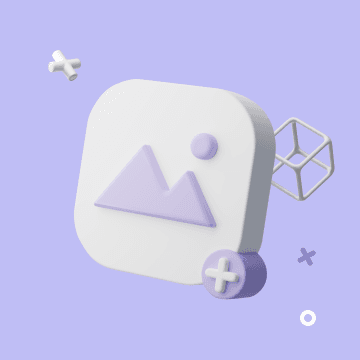
AI Agent vs AI Assistant: What’s the Real Difference and Why It Matters
AI Agent vs AI Assistant: A Simple Answer to a Complex Question
The core difference between AI agents and AI assistants comes down to autonomy versus collaboration.
AI agents act independently — they make decisions, execute tasks, and optimize processes without waiting for human input. AI assistants, on the other hand, work with humans, augmenting creativity, decision-making, and communication rather than replacing them.
In business, AI agents power automated processes like customer service, trading, and logistics. AI assistants help teams think better and move faster — surfacing insights, managing workflows, and simplifying complex tasks.
Modern platforms like Bika.ai blur this line by bridging automation and intelligence — empowering users to build autonomous AI teams that collaborate naturally with humans.
What Is an AI Agent? — The Engine Behind Autonomous Automation
From chatbots that process refunds to trading bots analyzing market data in milliseconds, AI agents are like intelligent autopilots.
They operate independently, continuously learning from data and adapting actions in real time.
Their power lies in speed, scalability, and precision.
Key Features of AI Agents
- Fully autonomous: Execute decisions without human involvement.
- Self-learning: Identify trends and patterns dynamically.
- Always-on systems: Operate 24/7 without downtime.
Examples of AI Agents
- Customer Support Chatbots: Handle thousands of inquiries, process returns, and provide instant assistance.
- Algorithmic Trading Bots: React to microsecond market changes to maximize profitability.
- Supply Chain Optimizers: Predict delays, recalculate routes, and ensure seamless delivery.
Why Businesses Use AI Agents
- Efficiency at Scale — Automate routine processes across thousands of workflows.
- Real-time Responsiveness — Act instantly on live data inputs.
- Cost Reduction — Minimize labor and training costs for repetitive tasks.
In short, AI agents are automation engines designed to keep systems running flawlessly.
What Is an AI Assistant? — Your Intelligent Copilot for Work
Unlike AI agents, AI assistants are purpose-built to empower users.
They don’t aim to replace human judgment — instead, they amplify it.
AI assistants handle context-rich tasks, offer recommendations, and improve decisions through conversation and insight.
Bika.ai’s Assistant Mode, for example, helps professionals generate reports, craft marketing strategies, and manage databases — transforming how humans interact with AI at work.

Key Features of AI Assistants
- Context-aware conversations: Understand nuance and adapt responses.
- Interactive and collaborative: Work like a teammate instead of a tool.
- Insight-driven productivity: Automatically surface patterns and trends.
Examples of AI Assistants
- Bika.ai Writer: Drafts marketing articles, emails, and brand messages in your voice.
- Bika.ai Google Analyst: Connects analytics data and visualizes performance instantly.
- Bika.ai Requirements Writer: Generates technical specifications and product documentation.

Why Businesses Use AI Assistants
- Enhanced Collaboration — Make human teams smarter, not smaller.
- Strategic Support — Combine creative thinking with data-driven guidance.
- Productivity Boosts — Automate routine cognitive work so humans can focus on impact.
AI assistants form the foundation for intelligent collaboration — not replacement.
AI Agent vs AI Assistant: A Complete Comparison
| Feature | AI Agent | AI Assistant |
|---|---|---|
| Core Function | Executes tasks autonomously | Supports and amplifies human decisions |
| Autonomy Level | Fully independent | Human-guided and context-aware |
| Decision-making | Algorithmic, rule-based | Adaptive, conversational |
| Primary Use Case | Process automation at scale | Insight generation and workflow support |
| Business Impact | Cost-saving through automation | Value creation through innovation |
| Examples in Bika.ai | Ticket Manager, Email Marketer, Stock Reporter | Writer, Google Analyst, Requirements Document Writer |
| Role in the Future of Work | Operational efficiency | Creative and strategic augmentation |
Takeaway:
AI agents are for execution. AI assistants are for co-creation.
Platforms like Bika.ai unite both worlds — giving users the power to automate and strategize simultaneously.
Why This Difference Matters for Modern Teams
Marketing Teams
AI assistants in Bika.ai empower marketers with instant consumer insights and automated campaign optimization.
Instead of spending hours analyzing data, marketers can refine messaging and pivot strategies instantly.
Meanwhile, AI agents automate publishing, scheduling, and audience outreach — maximizing reach while preserving brand voice.

Sales Teams
Sales professionals can use AI assistants to evaluate leads, analyze market sentiment, and personalize outreach.
AI agents handle repetitive CRM updates, send automated follow-ups, and organize contact databases.
Together, they streamline and supercharge the entire sales funnel.
Research Teams
For analysts and strategists, AI assistants in Bika.ai transform data into insight through contextual reasoning, while AI agents manage reporting pipelines, data collection, and workflow scheduling.
The combination enables fast innovation and more confident data-driven decisions.
Bika.ai: Bridging AI Agents and AI Assistants for One-Person Companies
Bika.ai is redefining digital organization by merging the strengths of AI agents and AI assistants.
Users can chat, build, and manage an agentic AI team inside a messenger-style workspace — combining automation, data, dashboards, and documents in one unified ecosystem.
How Bika.ai Unites Both Worlds
- Autonomous Execution: AI agents execute tasks instantly — from email marketing to CRM syncing.
- Collaborative Insight: AI assistants help with writing, strategizing, and analyzing in real time.
- Custom Agentic Team Building: Users create personalized AI teammates for marketing, support, research, and operations.
- Automation without Complexity: No-code workflows, databases, and templates turn ideas into automated systems in minutes.
In essence, Bika.ai empowers users to run a one-person AI company — achieving enterprise-level automation without the overhead.
Strategic Insight: Why Businesses Should Care
Understanding the difference between AI agents and AI assistants isn’t just about terminology — it’s about choosing the right engine for innovation.
Where AI agents bring speed and scale, AI assistants infuse strategy and creativity.
Together, they redefine how organizations — and individuals — work.
Tools like Bika.ai lead this transformation, enabling:
- Agile digital workflows
- Seamless collaboration between humans and AI
- Scalable automation powered by data intelligence
The future of business isn’t AI replacing people — it’s AI amplifying them.
Final Thoughts: The Future Is Agentic
AI agents and AI assistants represent the twin pillars of a new era of digital work.
But platforms like Bika.ai go further — merging autonomy with collaboration to create truly agentic organizations, where AI teammates act, think, and create alongside humans.
As businesses evolve, the real competitive advantage lies in mastering this synergy.
Knowing when to automate with agents and when to collaborate with assistants will determine who thrives in the next frontier of innovation.
The future of AI in business is not about choosing between automation and intelligence — it’s about organizing them together through platforms like Bika.ai.

Recommend Reading
- How to Use AI to Automate a Small Business (Real Examples)
- How to Automate Tasks with AI: What to Automate (and What Not To)
- What Are the 4 Stages of an AI Workflow? Tips for AI Workflow Automation
- How Top Consultancies Use AI and Automation
- How to Automate Customer Follow-Up Workflows With AI Assistants
Recommend AI Automation Templates



